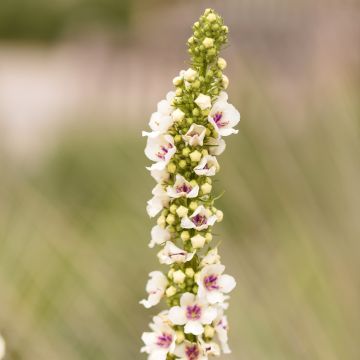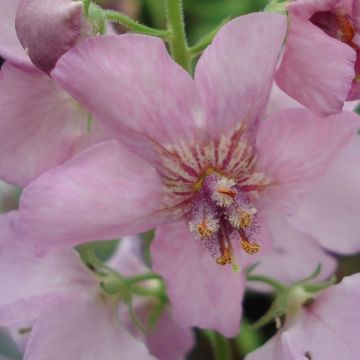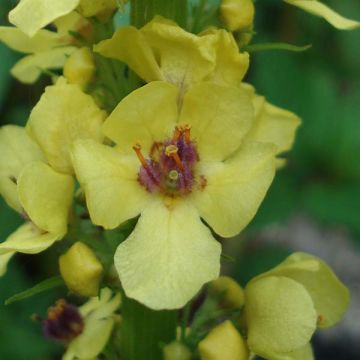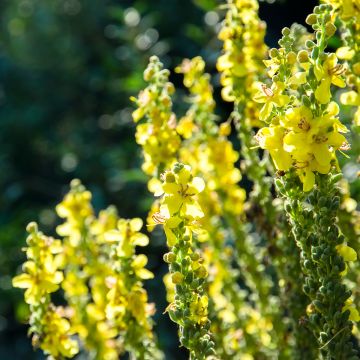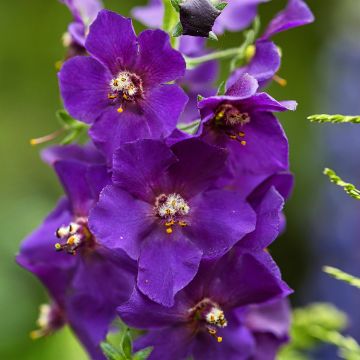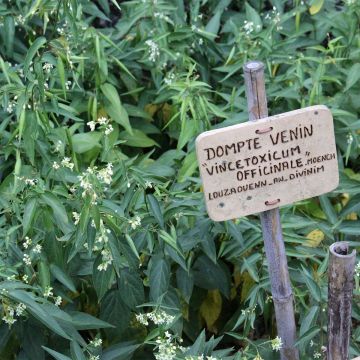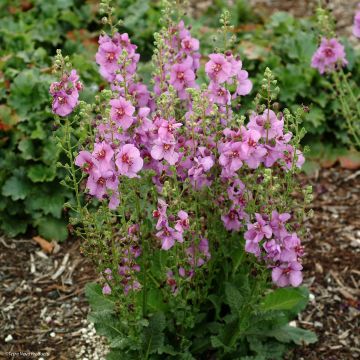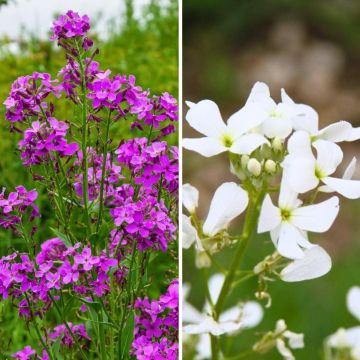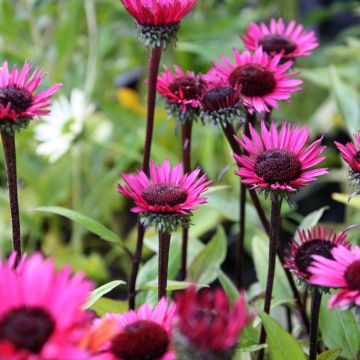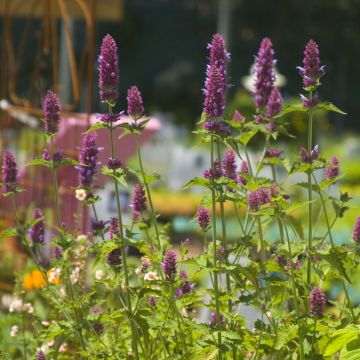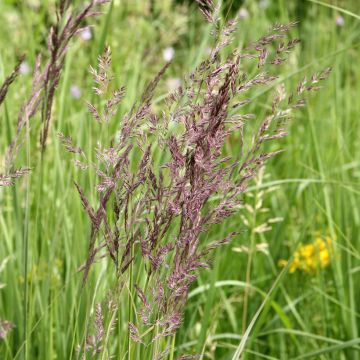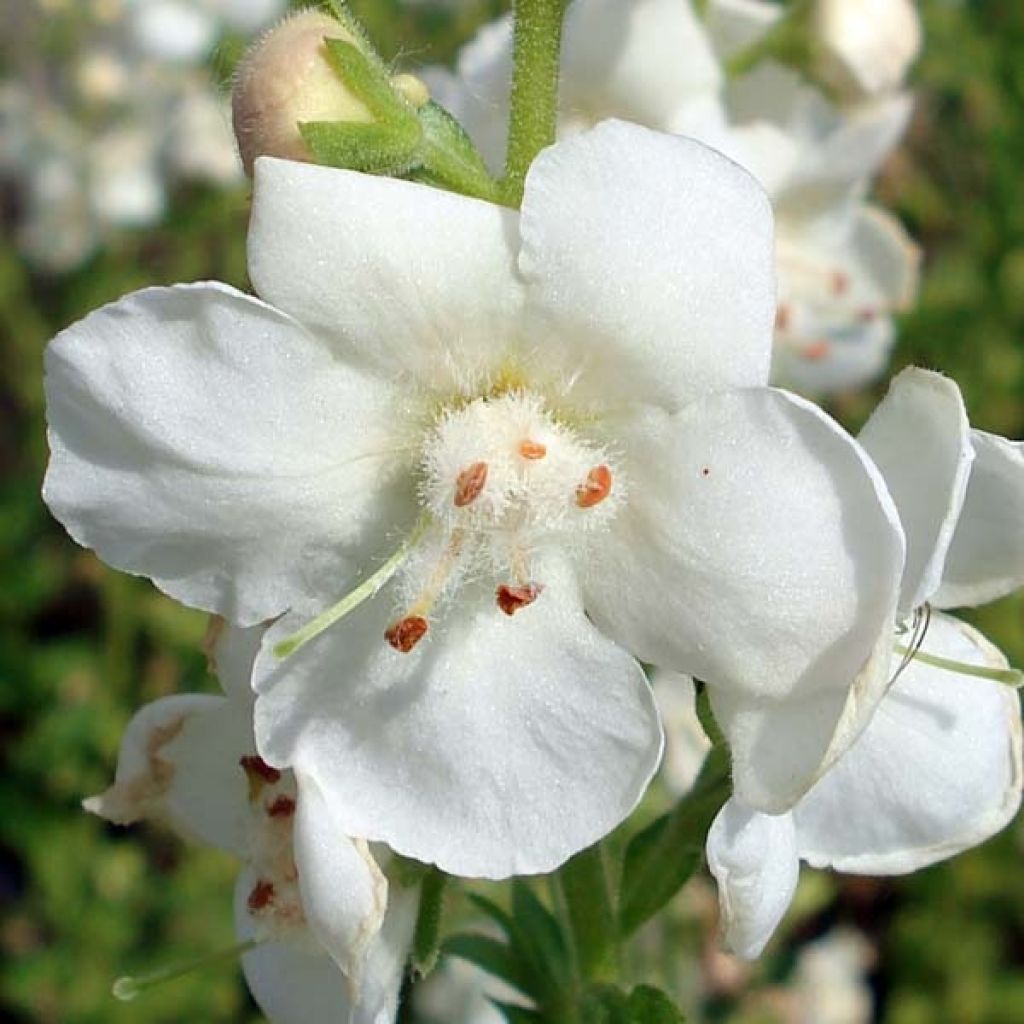

Verbascum chaixii White Domino - Mullein
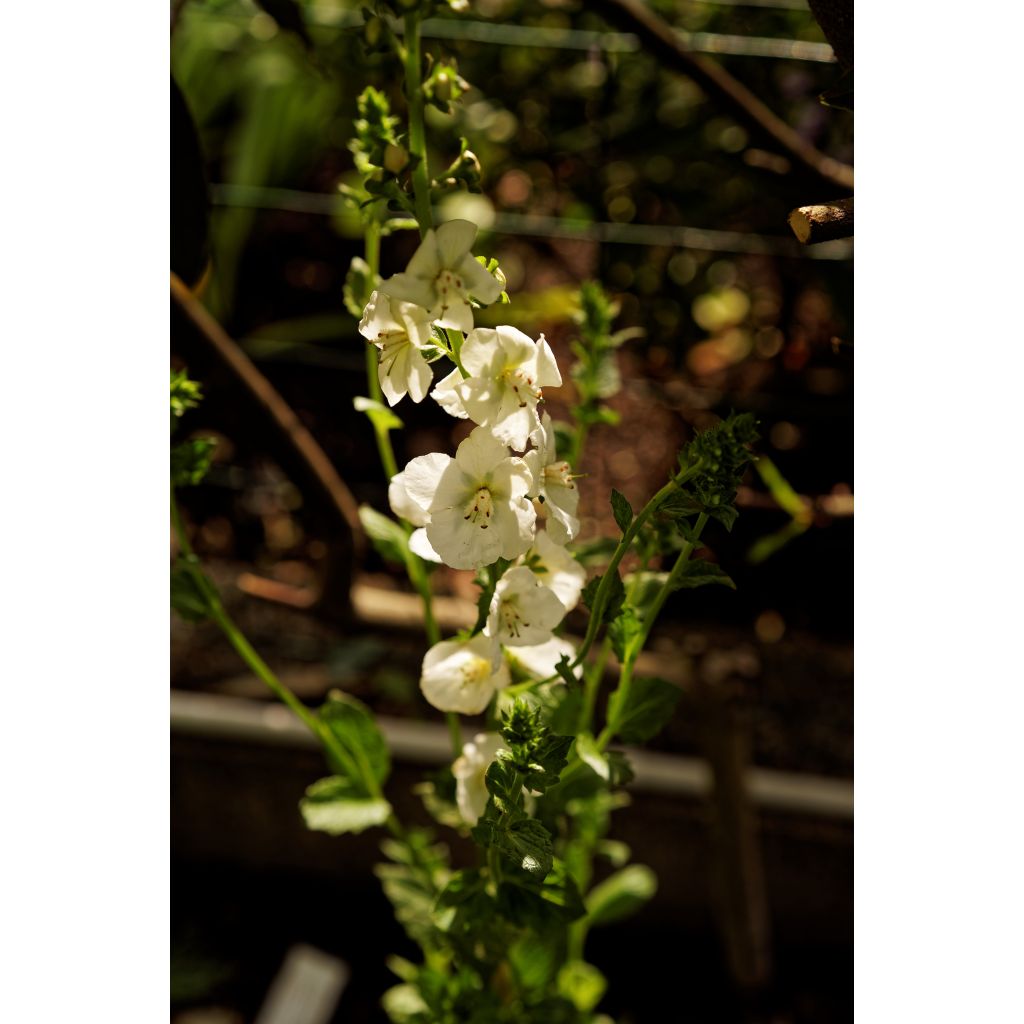

Verbascum chaixii White Domino - Mullein
Verbascum chaixii White Domino - Mullein
Verbascum x chaixii White Domino
Nettle-leaved Mullein
Despite regular and satisfactory orders on the website, the young verbascums have extremely disappointed me. Out of the three delivered, one was already dead and the other two were on the verge of dying... The delivery was nevertheless fast, so the plants must have been in very poor condition when they were sent. It's really a shame, and I wasn't expecting this unpleasant surprise.
Antoine, 07/11/2020
Special offer!
Receive a €20 voucher for any order over €90 (excluding delivery costs, credit notes, and plastic-free options)!
1- Add your favorite plants to your cart.
2- Once you have reached €90, confirm your order (you can even choose the delivery date!).
3- As soon as your order is shipped, you will receive an email containing your voucher code, valid for 3 months (90 days).
Your voucher is unique and can only be used once, for any order with a minimum value of €20, excluding delivery costs.
Can be combined with other current offers, non-divisible and non-refundable.
Home or relay delivery (depending on size and destination)
Schedule delivery date,
and select date in basket
This plant carries a 12 months recovery warranty
More information
We guarantee the quality of our plants for a full growing cycle, and will replace at our expense any plant that fails to recover under normal climatic and planting conditions.
Would this plant suit my garden?
Set up your Plantfit profile →
Description
Verbascum 'White Domino', also known as Hybrid Mullein or White Mullein, is a tall, graceful, floriferous and undemanding herbaceous perennial. In summer, it produces tall, beautiful spikes of numerous small pure white flowers with purple stamens, above grey-green, hairy, opulent and semi-evergreen rosettes of foliage. It will grow quickly and upright, generous even in partial shade and full of elegance and lightness. Irreplaceable in romantic and slightly wild flowerbeds in poor soils.
Hybrid Mullein 'White Domino' belongs to the Scrophulariaceae family. It is a hybrid, resulting from cross-breeding of Verbascum chaixii native to central and southern Europe, the Caucasus, and Armenia, among others. This plant reaches a height of 1m (3ft), more in fertile soil, at the expense of its stability. Its growth is rapid and it will reach its final size in one month. This perennial has a rosette from which long branching floral stems emerge. The flowering period is from June to August, with pyramidal spikes 70 cm (28in) high, composed of cup-shaped 3 cm (1in), white flowers tightly packed together, opening here and there along the spike. The rosettes have ovate to elliptical, undulate, dark grey-green, velvety leaves, 20 cm (8in) long. This mullein is a bee-friendly perennial, often grown as a biennial as it is not very long-lived, but readily self-seeds in light soil.
Verbascum 'White Domino' seems to tolerate partially shaded exposures well, although it prefers the sun. This robust plant will tolerate drought and ordinary, even poor soil, but will be more floriferous in not too poor, clayey and chalky, very well-drained soil. This Verbascum will bring elegance and lightness to flowerbeds. With its volume and height, it will find a place in the back of a flowerbed or grouped in a border. It will also fit well in a wild garden due to its rustic appearance, or a romantic garden. You can plant it in a pot on the terrace to fully enjoy its splendid flowers. Its tall flower spikes will make wonderful summer bouquets. It will be the perfect companion in mixed perennial borders, with shrub or climbing roses, delphiniums, or ornamental grasses, and you can also plant it with other Mulleins.
Report an error about the product description
Verbascum chaixii White Domino - Mullein in pictures
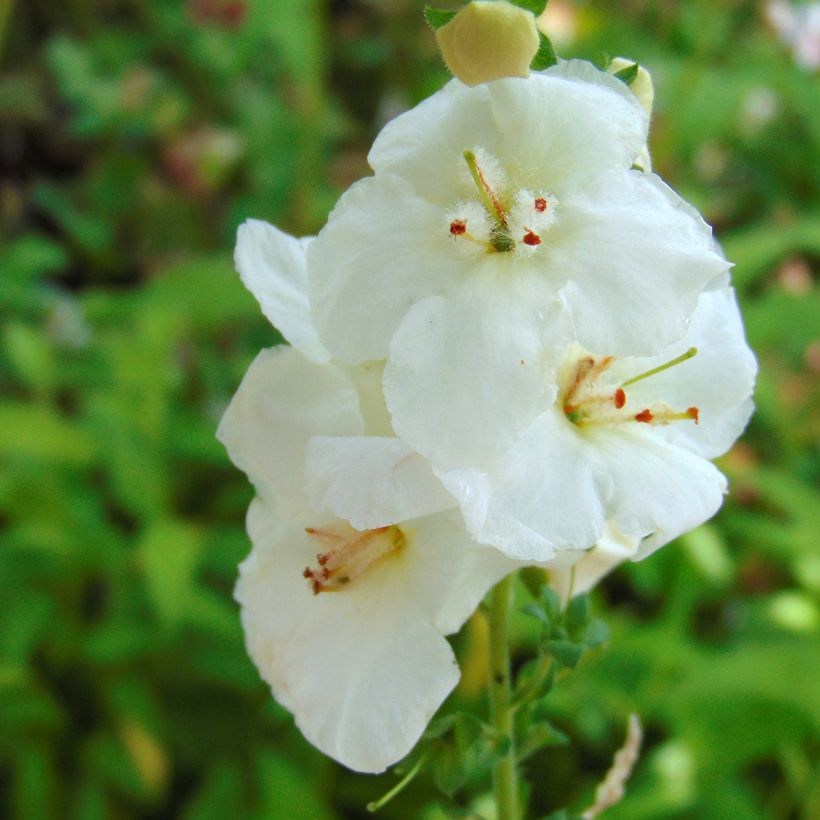

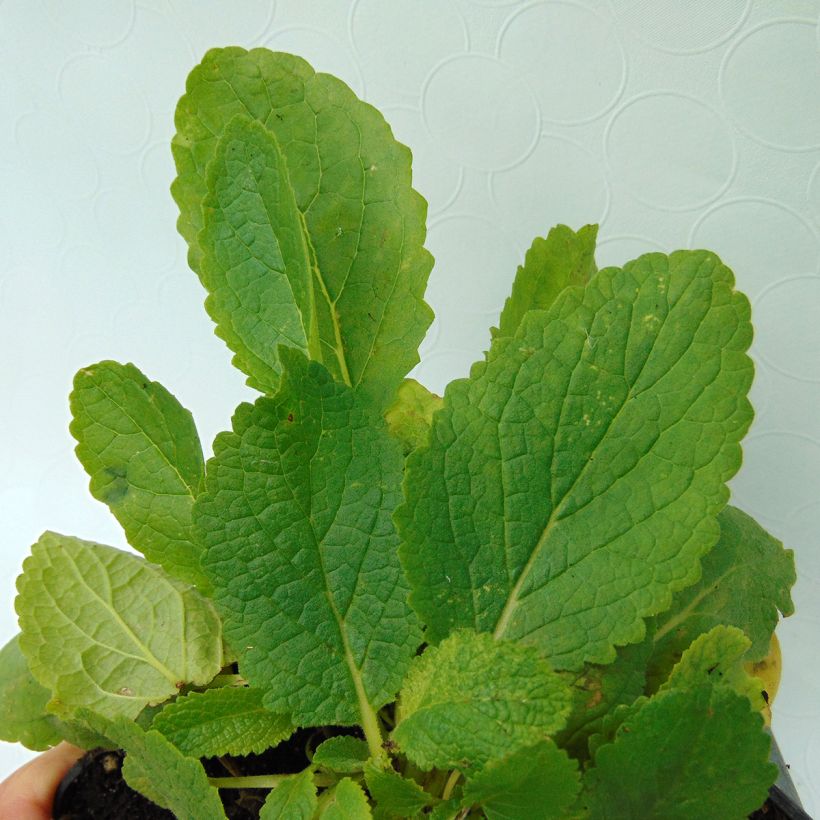

Flowering
Foliage
Plant habit
Botanical data
Verbascum
x chaixii
White Domino
Scrophulariaceae
Nettle-leaved Mullein
Cultivar or hybrid
Other Verbascum - Mullein
View all →Planting and care
Verbascum 'White Domino' must be planted in full sun or partial shade. This mullein should be planted in spring, in ordinary, light and porous, well-drained soil, and prefers moist to dry limestone soil where it will readily self-seed (the colour of the flowers will not come true). It does not tolerate soils which are waterlogged in winter, which will be fatal to it. Cut the faded flowers at the base of the stem to promote more flowers and the perenniality of the plant. Prune the dry parts as soon as they are no longer decorative and clean the clump no later than the end of winter.
Planting period
Intended location
Care
-
, onOrder confirmed
Reply from on Promesse de fleurs
Similar products
Haven't found what you were looking for?
Hardiness is the lowest winter temperature a plant can endure without suffering serious damage or even dying. However, hardiness is affected by location (a sheltered area, such as a patio), protection (winter cover) and soil type (hardiness is improved by well-drained soil).

Photo Sharing Terms & Conditions
In order to encourage gardeners to interact and share their experiences, Promesse de fleurs offers various media enabling content to be uploaded onto its Site - in particular via the ‘Photo sharing’ module.
The User agrees to refrain from:
- Posting any content that is illegal, prejudicial, insulting, racist, inciteful to hatred, revisionist, contrary to public decency, that infringes on privacy or on the privacy rights of third parties, in particular the publicity rights of persons and goods, intellectual property rights, or the right to privacy.
- Submitting content on behalf of a third party;
- Impersonate the identity of a third party and/or publish any personal information about a third party;
In general, the User undertakes to refrain from any unethical behaviour.
All Content (in particular text, comments, files, images, photos, videos, creative works, etc.), which may be subject to property or intellectual property rights, image or other private rights, shall remain the property of the User, subject to the limited rights granted by the terms of the licence granted by Promesse de fleurs as stated below. Users are at liberty to publish or not to publish such Content on the Site, notably via the ‘Photo Sharing’ facility, and accept that this Content shall be made public and freely accessible, notably on the Internet.
Users further acknowledge, undertake to have ,and guarantee that they hold all necessary rights and permissions to publish such material on the Site, in particular with regard to the legislation in force pertaining to any privacy, property, intellectual property, image, or contractual rights, or rights of any other nature. By publishing such Content on the Site, Users acknowledge accepting full liability as publishers of the Content within the meaning of the law, and grant Promesse de fleurs, free of charge, an inclusive, worldwide licence for the said Content for the entire duration of its publication, including all reproduction, representation, up/downloading, displaying, performing, transmission, and storage rights.
Users also grant permission for their name to be linked to the Content and accept that this link may not always be made available.
By engaging in posting material, Users consent to their Content becoming automatically accessible on the Internet, in particular on other sites and/or blogs and/or web pages of the Promesse de fleurs site, including in particular social pages and the Promesse de fleurs catalogue.
Users may secure the removal of entrusted content free of charge by issuing a simple request via our contact form.
The flowering period indicated on our website applies to countries and regions located in USDA zone 8 (France, the United Kingdom, Ireland, the Netherlands, etc.)
It will vary according to where you live:
- In zones 9 to 10 (Italy, Spain, Greece, etc.), flowering will occur about 2 to 4 weeks earlier.
- In zones 6 to 7 (Germany, Poland, Slovenia, and lower mountainous regions), flowering will be delayed by 2 to 3 weeks.
- In zone 5 (Central Europe, Scandinavia), blooming will be delayed by 3 to 5 weeks.
In temperate climates, pruning of spring-flowering shrubs (forsythia, spireas, etc.) should be done just after flowering.
Pruning of summer-flowering shrubs (Indian Lilac, Perovskia, etc.) can be done in winter or spring.
In cold regions as well as with frost-sensitive plants, avoid pruning too early when severe frosts may still occur.
The planting period indicated on our website applies to countries and regions located in USDA zone 8 (France, United Kingdom, Ireland, Netherlands).
It will vary according to where you live:
- In Mediterranean zones (Marseille, Madrid, Milan, etc.), autumn and winter are the best planting periods.
- In continental zones (Strasbourg, Munich, Vienna, etc.), delay planting by 2 to 3 weeks in spring and bring it forward by 2 to 4 weeks in autumn.
- In mountainous regions (the Alps, Pyrenees, Carpathians, etc.), it is best to plant in late spring (May-June) or late summer (August-September).
The harvesting period indicated on our website applies to countries and regions in USDA zone 8 (France, England, Ireland, the Netherlands).
In colder areas (Scandinavia, Poland, Austria...) fruit and vegetable harvests are likely to be delayed by 3-4 weeks.
In warmer areas (Italy, Spain, Greece, etc.), harvesting will probably take place earlier, depending on weather conditions.
The sowing periods indicated on our website apply to countries and regions within USDA Zone 8 (France, UK, Ireland, Netherlands).
In colder areas (Scandinavia, Poland, Austria...), delay any outdoor sowing by 3-4 weeks, or sow under glass.
In warmer climes (Italy, Spain, Greece, etc.), bring outdoor sowing forward by a few weeks.






























